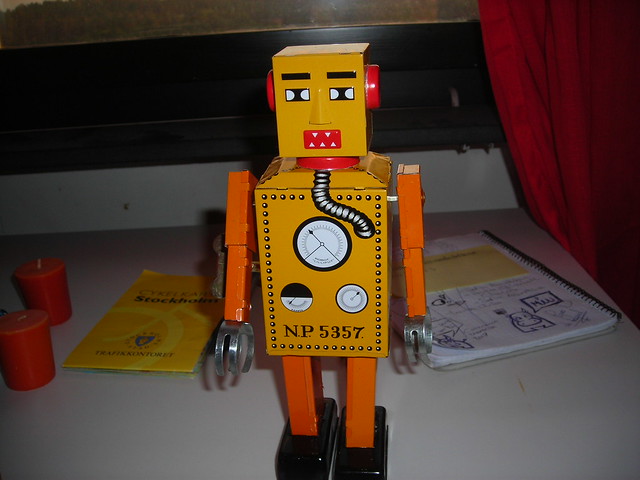
Image Credit: Dorian
Ok, so let’s have a talk here for just a moment. The managers that CIOs are putting into place these days seem to becoming younger and younger. Maybe it’s because there are so many millennials now working in the IT department, but it sure seems as though the pool of candidates that we can promote to manager no longer have any gray hair. This is causing a problem for the person with the CIO job. This new breed of manager lacks some basic training. In order to ensure that this new generation of IT managers is going to be successful dealing with the importance of information technology, is this the time for the person in the CIO position to turn to robots to keep track of how their new managers are doing?
The Challenges With The New Breed Of Managers
So let’s take a closer look at the specific problem that CIOs are currently facing with their IT managers. The people that are getting promoted into manager positions are discovering that they don’t have many of the basic skills that they are going to need in order to perform this job well. Key tasks such as delivering feedback to team members and delegating work are supervisory skills that they are just lacking. Where CIOs may be able to fill in some of these gaps comes from a new breed of artificial intelligence (AI) driven coaching apps and platforms. These apps are able to provide managers with tips on their phones in 5-10 minute videos and texts. This allows new managers to consume them during breaks in their workday.
What CIOs need to realize is that their new crop of managers learn in ways that are different from the managers who have come before them. This new generation of managers prefers to check an app over sitting in a class having to review PowerPoint slides. Research has been done that shows that managers can learn new material best through periodic repetition and reminders. CIOs do need to understand that there may be some issues here. The texts and emails from the robot apps can be easy to ignore. Also, if a robot apps suddenly becomes too personal, the manager may find their interaction to be either jarring or just downright strange. An analogy to these apps are the fitness apps that many of us use that are always telling us to get up and walk around more. We tend to ignore what they tell us over time.
One of the key issues that every CIO has to worry about is the cost of making sure that their managers are performing correctly. Although AI-apps can be useful, they will never replace human coaches for managers. What this means is that if a CIO can find a human coach to manage their managers, then he or she should do that. However, such coaches cost US$200 – $500 per hour so they don’t come cheap. On the other hand, AI-apps generally cost $30 / month for individual users. This cost can go down to $20 / month for employees at larger firms. Each one of these AI-apps operates differently. Some track feedback from a manager’s direct reports and then use machine learning to provide both tips and articles.
How Robots Can Help New Managers Be Successful
Some of the power of using robot AI-apps to teach managers how to manage comes from the teaching methods that have been built into them. Since they are able to draw on AI techniques, some applications are able to factor a manager’s responses over time into how the app both selects and delivers its next round of coaching tips. An example of this would be a manager who has almost mastered one set of material who could then be reminded about it less often than a manager who is being exposed to the material for the first time. Likewise, AI-apps can tailor their management content to what managers want to learn.
Most of the new robot AI-apps are using what is being called “microlearning”. This happens when the training that a manager needs is injected into a workday on an as needed basis. A survey of managers has revealed that roughly half of them prefer to receive the training that they need on the job, when they need it instead of in a formal classroom setting. The robot AI-apps can be very powerful tools. Some of these apps are able to analyze a company’s corporate and demographic data in order to attempt to identify changes that would boost employee happiness and their retention. Once the app understands this, it can then cause managers to change their behaviors in a positive way by sending them either emails or texts.
The use of robot AI-apps can allow managers to both give and receive feedback from their teams more easily. If the AI-app is able to detect a morale problem within a team, the app can start to send nudges to the manager to become more open with their team. What managers seem to appreciate the most about the reminders that they are receiving is that they remain in their “front of mind” – they are hard to ignore or forget. The frequency of the messages can vary, but many managers report that they receive them roughly twice a month. Receiving reminders like this can help managers to remember that there are changes that they have to make in order to improve the solidarity of their team and provide everyone with a sense of belonging.
What All Of This Means For You
Today’s CIOs are faced with a unique challenge. When we select people to become managers in our IT department, more and more often it is turning out that these people are getting younger and younger. This is creating a problem for CIOs because their new managers don’t necessarily have the experience that they are going to need in order to perform their job successfully. What this means is that CIOs are going to have to find a way to get them help in managing. Could robot AI-apps be the answer?
The new breed of IT managers have never had an opportunity to provide feedback or delegate work within a team. The arrival of robot AI-apps allow these new managers to get the training that they need in an on-the-job fashion using their mobile phones. CIOs need to understand that their new managers learn differently than past generations of managers did. The new managers appreciate having training delivered to them though out the day instead of having to go off to an all-day training class. Having human coaches is always better, but they are also much more expensive than using robot AI-apps is. AI-apps are about to implement teaching methods that have been shown to work. Managers can be exposed to the material that they need, when they need it. The AI-apps can sense what a team needs from their manager and then start to send the manager reminders to get them to do the right thing at the right time. Using the robot AI-apps allows managers to keep what they are supposed to be doing in the front of their mind and not forget about it.
CIOs need to allow the next generation of managers to take the helm. However, CIOs also have the responsibility to make sure that these new managers are going to be able to perform their job correctly. One way to make this happen is to use robot AI-apps to deliver management training when it is needed. These new apps seem to be able to analyze what the company wants to accomplish and what a team needs and then guide the manager to making it happen. Robot AI-apps appear to be a new tool that CIOs have to make their IT departments even better than they were before!
– Dr. Jim Anderson
Blue Elephant Consulting –
Your Source For Real World IT Department Leadership Skills™
Question For You: What manager training do you think that robot AI-apps are not able to do?
P.S.: Free subscriptions to The Accidental Successful CIO Newsletter are now available. Learn what you need to know to do the job. Subscribe now: Click Here!
What We’ll Be Talking About Next Time
Just about everyone knows who Volkswagen is. They are the German company who makes cars – remember the Beetle from the 1960’s? Well, they are still around and they still make cars. The person with the CIO job has been studying the car market and has seen the rise of Tesla in the electric car space. VW would like to enter this market also. However, despite their years of experience in making cars, it turns out that it’s been software that they have been struggling with as they try to enter this new market.

